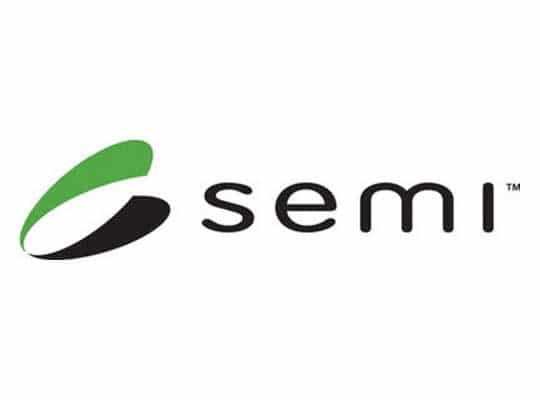HSINCHU, Taiwan, Aug. 18, 2020 – SEMI announced the formation of a new standards committee that aims to develop global standards for flexible hybrid electronics (FHE) spanning demanufacturing, packaging and systems and to drive industry growth. and to drive industry growth. Unanimously endorsed by members of the SEMI North America Regional Standards Committee (NARSC) and approved by the SEMI International Standards Committee (ISC), the technical committee is the world’s first to focus on flexible hybrid electronics standards. The SEMI Standards Flexible Hybrid Electronics Global Technical Committee has established its first chapter in Taiwan.
“The SEMI Standards Flexible Hybrid Electronics Global Technical Committee sets out to clear development bottlenecks facing the industry and establish unified measurement standards for flexible smart textile, automotive, Internet of Things (IoT) and related devices,” said Terry Tsao, SEMI Chief Marketing Officer and President of SEMI Taiwan. “The Taiwan chapter looks forward to kicking off the development of international industry standards that help Taiwan’s FHE sector promote industry growth by reducing costs and increasing competition.”
Initial work of the SEMI Standards Flexible Hybrid Electronics Global Technical Committee will include establishing working groups to draft measurement standards; building industry consensus on the need for materials, equipment and manufacturing standards; and developing standards to accelerate the introduction of related FHE technologies into diverse consumer end markets.
“We are very pleased to see the establishment of the SEMI Standards Flexible Hybrid Electronics Global Technical Committee and are proud to be part of the working committee to draft the standards,” said Steve Huang, executive director of Taipei-based AiQ Smart Clothing, an innovator with a significant pool of smart textile IP. “As a pioneer in smart textile applications, we are keenly aware of the challenges posed by an absence of standards and how it stifles mass adoption of new technologies.”
The SEMI International Standards Program is in its 47th year, with the 1,000th SEMI Standard published last year. SEMI Standards cover fields including semiconductors, displays, photovoltaics, microelectromechanical systems (MEMS) and smart manufacturing.
For more information please visit www.semi.org















